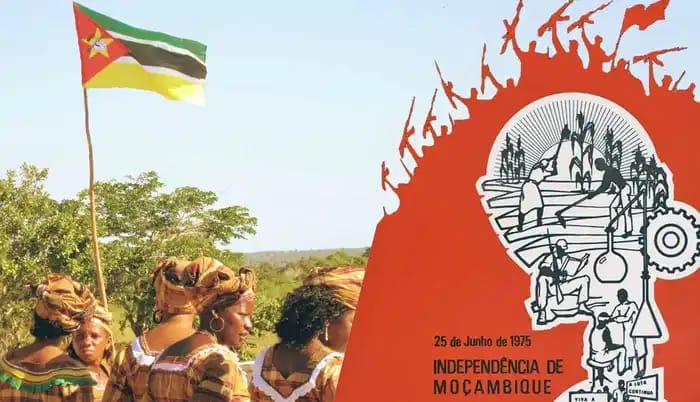Mozambique today celebrates five decades of independence, marking a profound moment of national reflection on a journey shaped by courage, sacrifice, and resilience.
On June 25, 1975, Mozambique officially declared its independence from Portugal, following centuries of colonial rule and an armed liberation struggle led by the Mozambique Liberation Front (FRELIMO). The milestone anniversary provides an opportunity not only to honor the past but also to reaffirm hopes for a peaceful and prosperous future.
Honoring a Long History
Mozambique’s story under foreign rule began over 480 years ago, when Portuguese explorers first arrived along its coastline. The strategic location of Mozambique made it a vital gateway in international trade, but it also became a target for exploitation—of land, labor, and natural wealth.
Through centuries, Mozambicans resisted domination. From the Gaza Empire’s stand against foreign control to rural communities pushing back against forced labor and inequality, resistance has always been part of the national spirit.
The Rise of Liberation Movements
The turning point came in June 1960, when peaceful protests in Mueda were met with violent repression. The tragedy ignited a new phase in the struggle. Two years later, Mozambican patriots formed FRELIMO in Dar es Salaam, and by 1964, the movement had launched its first military campaign for national liberation.
Backed by international solidarity and strengthened by unity across ethnic and regional lines, Mozambicans demanded their right to self-determination. Despite challenges, the liberation movement endured. Even after the loss of its first president, Eduardo Mondlane, in 1969, the cause did not falter.
Victory and a New Beginning
The 1974 Carnation Revolution in Portugal opened the door to independence across its African colonies. For Mozambique, it marked a long-awaited breakthrough. Negotiations led to the Lusaka Accords in September 1974, and on June 25 the following year, Mozambique was born as a sovereign nation.
The celebrations were filled with hope, pride, and a deep sense of renewal. But independence also arrived with urgent responsibilities. Centuries of colonial neglect had left the country with few trained professionals and major gaps in education and healthcare.
Still, the people of Mozambique were determined. The task of building a nation began with enthusiasm, unity, and an unwavering commitment to progress.
Facing Internal Challenges
Mozambique’s early years were not without hardship. Regional instability, remnants of colonial divisions, and external interference led to a prolonged internal conflict. From 1977 to 1992, a civil war caused immense suffering. But Mozambicans, once again, chose dialogue over division.
The Rome Peace Accord brought an end to the fighting. Since then, Mozambique has embraced multi-party democracy and gradually worked toward reconciliation and rebuilding.
A Country Moving Forward
Today, Mozambique stands as a country that has faced extraordinary trials and yet continues to move forward. Significant strides have been made in infrastructure, education, health, and economic development.
Since 2017, the northern province of Cabo Delgado has faced a new threat in the form of violent extremism. The government, in coordination with regional partners, continues to respond to protect civilians and preserve stability. The discovery of natural gas in the region holds potential for long-term growth, provided peace and transparency are maintained.
FRELIMO, now under the leadership of Daniel Chapo, has steered the country into a liberal economic direction, attracting investment and promoting growth. Yet challenges remain. Many citizens still face economic hardship, and the fight against corruption and inequality continues.
A Time to Celebrate and Recommit
As Mozambique marks 50 years of independence, the country remembers the sacrifices made, the battles fought, and the dreams that endured through decades of hardship. The anniversary is not only a celebration of freedom but also a moment to recommit to the values that inspired independence: unity, dignity, and justice.
Across cities and villages today, the flag flies proudly. The spirit of independence lives on—not just in history books, but in every Mozambican striving for a better tomorrow.



